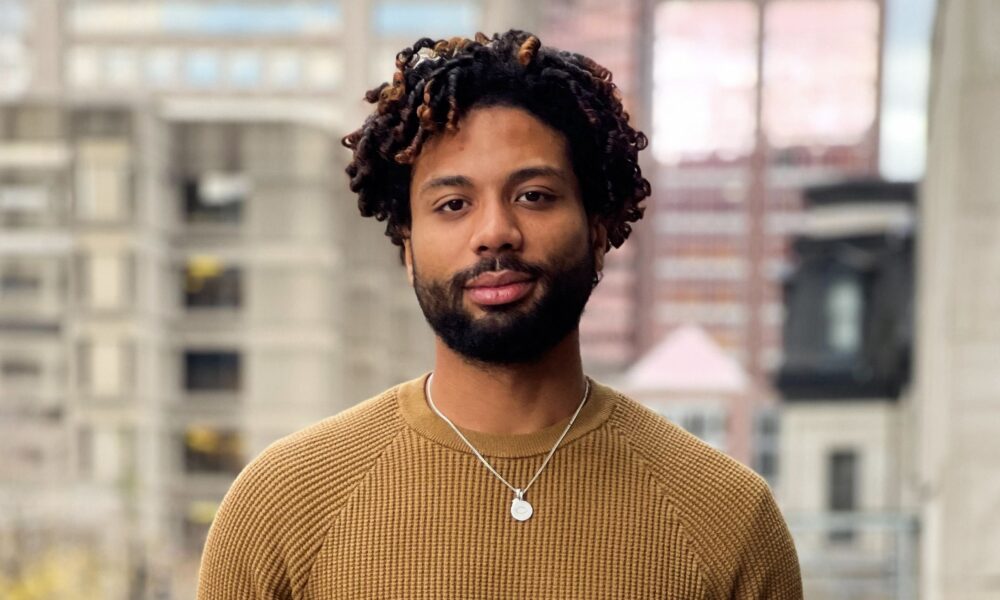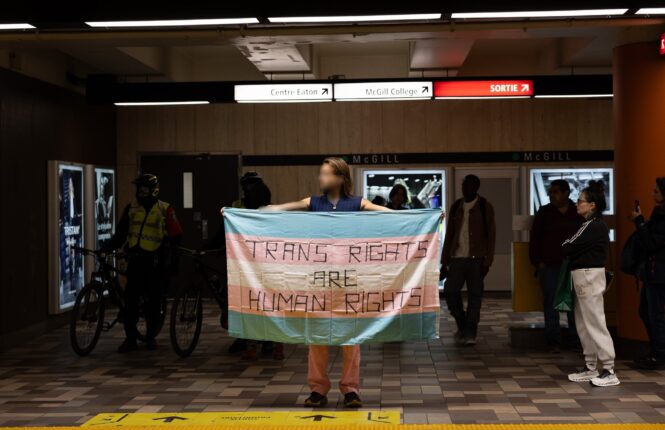Elijah Olise, a first-year Social Work student at McGill, has an extraordinary ability to connect with others. From the moment he entered The Tribune’s office, he made an impact—shaking hands with everyone in the room, making eye contact, and engaging in genuine conversation. His humility and kindness shone through in every interaction, never overshadowed by his impressive accomplishments.
Olise is a full-time student and the founder of the nonprofit organization, Holistic Afro Youth Center (HAYC), supporting those transitioning out of youth protection. Olise’s journey is shaped by his experiences in the foster care system in Montreal. By the age of 17, he had aged out of government housing and found himself feeling alone and lost—a reality many youth in care struggle to overcome. His activism is inspired by the 2020 Black Lives Matter and Defund the Police movements, in which Olise was deeply involved. However, he stated that calls to reallocate police funds to social workers were not so straightforward. The field of social work is riddled with misconduct––with many practices stemming from Canada’s residential school systems.
“When I aged out [of foster care] at 18, I realized that a lot of the activists and advocates I was surrounded by weren’t aware of the issues in the system,” Olise said in an interview with The Tribune.
So, he took action. Olise began planning the launch of HAYC, which was officially established in 2023. Though it collaborates with hundreds of organizers across the province, HAYC operates with a humble but mighty team of just three people. Olise credits the success of the center to support from organizations like QBBE and MYCASA, and colleagues such as Marcelle Partouche Gutierrez of the Carrefour Jeunesse Emploi – Notre-Dame-de-Grâce, Dez Gregoire of Tasiutigiit. One of the greatest sources of motivation and inspiration to Olise is his mentor, Leith Hamilton, who has not only supported his work since its conception but stood beside him throughout his personal struggles and journey to healing. Hamilton, to Olise, is like family.
The organization focuses on tangible changes, measuring success through goals set by the youth themselves. Olise explained that HAYC has three pillars: Food security, sovereignty initiatives, and holistic skills training. The team meets with youth before they age out of care, discussing their plans for the future.
“I believe every single individual is accountable to the health of their community,” he said.
However, this work is not without its challenges. Olise acknowledges that his personal experiences in the system seep into his work and activism, often making it difficult to separate himself from those he supports.
“I’m responding to trauma that I’m still healing from,” Olise said.
Despite the demands of his nonprofit, Olise balances his advocacy with his academic responsibilities as a student at McGill. For Olise, scheduling is key to ensure he doesn’t “get lost in the sauce.”
HAYC is currently in the process of acquiring property, with plans to create a holistic housing model replicable in other Canadian cities. Olise’s long-term goals include legislative change to prevent youth from abruptly aging out of care at 18 and building a greenhouse to provide a local food system. Along with this, he aims to establish a knowledge hub connected to McGill and Concordia where youth can receive vocational training certifications.
“Of the youth who age out of care in Quebec, 2 per cent go to post-secondary, and only 1 per cent obtain the degree. At most throughout Canada, it’s 17 per cent,” Olise said.
McGill students can learn a lot from Olise: Most importantly, that each of us is responsible for nurturing the well-being of our community, and we should do so with unwavering passion and commitment.
“There’s a lot of shame around radicalism,” he said. “But negative peace can never trump genuine justice. Find your role and be radical about it.” For those looking to get involved, HAYC welcomes donations, volunteers, and anyone interested in learning more about its mission and initiatives. Interested students can find more information on HAYC’s website, haycenter.ca or on their Instagram, @haycenter.









